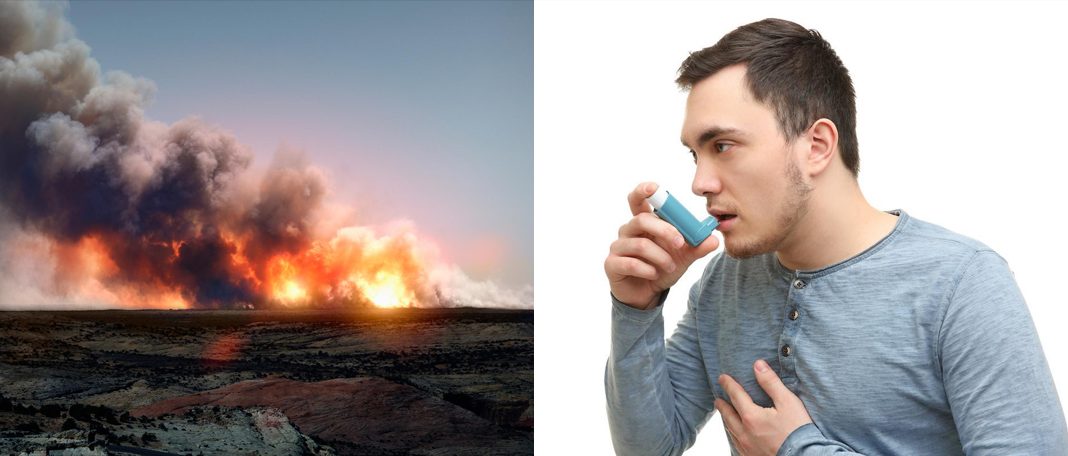Smoke from a wildfire consists of air pollutants, which are harmful to people. The pollutants include tiny particles, which can be carcinogenic (cancer-causing). They can cause other serious health problems too. If people suffering from asthma inhale the smoke from wildfires, their respiratory issues will be aggravated. More complicated conditions, such as a stroke or heart attack may also ensue. Read this blog to know the wildfire smoke precautions for asthma and also the measures to take for immediate relief.
Asthma and Wildfire Smoke
Wildfires can be natural or man-made. At times, natural causes like lightning can trigger wildfires. As for man-made causes, people burn debris, set off fireworks, or throw burning cigarette butts carelessly on the ground, leading to wildfires.
Wildfire smoke irritates your eyes, throat, and lungs. Thus, people with asthma will be adversely affected by this smoke. It can also result in inflammation, coughing, or shortness of breath.
Wildfire smoke can travel extremely long distances. So, even if you are far away from it, you may experience health issues. If you live in a region where wildfires are common, or in case there has been a recent wildfire in your area, you can protect yourself and others by following our tips.
Asthma Management during Wildfires
Prevention of man-made wildfires is possible. For example, you can avoid cooking foods that require a lot of grilling or deep frying. You can also refrain from tossing burning cigarette butts on the ground.
In case there is an accidental wildfire in your locality and you suffer from asthma, follow the measures below to protect yourself.
Avoid Going Outside
Stay indoors so that you are not exposed to the smoke from wildfires. If you suffer from asthma, staying away from intense smoke can help you prevent the aggravation of your problem. You can even avoid other severe lung conditions.
Use Your Medication
Make sure that you have your medication handy. If you face any difficulty in breathing even after taking your medication, consult your doctor/healthcare provider immediately. You must do the same if you have a never-ending cough or any other symptom that lasts for a long duration.
Protect the Kids
Kids are much more likely to be affected by smoke inhalation than adults because their lungs are not fully developed. Added to that, they are closer to the ground, which causes them to inhale more smoke than adults. If any child in your family suffers from asthma, you must take extra measures to protect them. Ensure that you have their inhaler readily available.
Do you have an asthma action plan ready? Execute it if required.
Wear a Mask
When you purchase a mask, ensure that it covers your nose and mouth without leaving any gaps. You can perform a seal check test to confirm that it fits. N95 masks are pretty effective, and are recommended by many healthcare providers.
Asthma and Air Quality during Wildfires
Even days after a wildfire, its smoke will linger in the air. Therefore, keep checking the local air quality. You can do this by using Air Quality Monitors, which can find out both indoor and outdoor (local) air qualities.
Air Quality Index (AQI) is used by government agencies to let the public know how polluted the air is. With a rise in AQI, public health risks also increase. Governmental bodies encourage people to minimize outdoor activities when the AQI is too high.
Thus, by keeping track of air quality, you will know if you are safe to venture out. In case you or a family member suffers from asthma, it is wise to stay indoors when the AQI is high.
Stay Safe, Stay Healthy, and Happy!
If a kid or someone in your family has severe asthma, it would be wise to vacate the area if the smoke from the fire is unbearable. Vacating the region quickly can even help save lives.
Coping with asthma and wildfire smoke is pretty easy when you take the right measures. By reading this blog, you would have obtained some helpful information on wildfire smoke precautions for asthma.


















